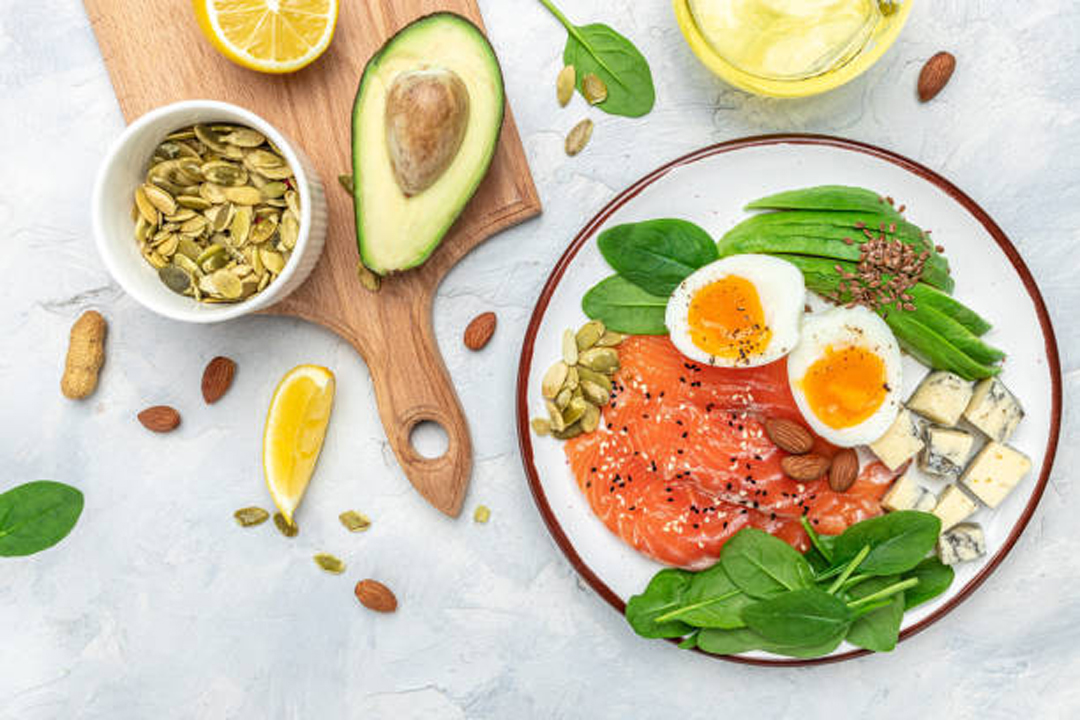Folic acid is important for a baby’s healthy growth before conception and in the first few months of pregnancy to guard against neural tube defects. Women should take a supplement of 400mcg a day for a month before getting pregnant and for the first 12 weeks of pregnancy. There is no need to continue taking folic acid pills beyond the 12th week of pregnancy, but it’s crucial to maintain a diet high in foliate. Eating a balanced, diversified diet that includes foods high in foliate, such as leafy green vegetables, fruits, and legumes, can ensure appropriate foliate levels throughout pregnancy.
Consuming vitamin D, found in prenatal vitamins, is also crucial for bone health during pregnancy. Women should resist the urge to “eat for two” during pregnancy to avoid gaining too much weight, which can lead to health problems for both mother and child. Cravings for non-food items, called pica, may indicate a mineral deficiency and should be discussed with a healthcare professional. It’s important for pregnant women to prioritize their health and get the attention and help they need to do so.
Consider folic acid …
Foliate, which is also called folic acid, is important for a baby’s healthy growth before conception and in the first few months of pregnancy. Doctors recommend that women take a supplement of 400mcg a day, which is double what an adult needs, for a month before getting pregnant and for the first 12 weeks of pregnancy to make sure they get enough folate. Folic acid is especially crucial during these early weeks to guard against neural tube defects, which can lead to illnesses like spina bifida and anencephaly, a brain abnormality. By taking folic acid supplements as advised, women can help lower their baby’s chance of these significant birth defects and help the baby grow and develop in a healthy way. Here are some common food sources:
- Avocados
- Broccoli, spinach, and other leafy green vegetables
- Beans and legumes
- Fortified breakfast cereals
- Whole grains
- Orange juice
… then stop it
There is no need to continue taking folic acid pills beyond the 12th week of pregnancy, but it’s crucial to maintain a diet high in foliate. While foliate is crucial throughout the entire pregnancy, some research suggests that consuming too much folic acid later on may raise the risk of infants developing asthma. As a result, it’s crucial to adhere to your doctor’s advice on folic acid supplementation and to discuss any concerns you may have regarding your intake of foliate. It is possible to ensure appropriate foliate levels throughout pregnancy by eating a balanced, diversified diet that includes foods high in foliate, such as leafy green vegetables, fruits, and legumes.
Consume vitamin D
Due to the needs of a growing baby, a mother’s bones can become less dense when she is pregnant. To assist avoid this, you should eat more oily fish and cereals with added vitamins. Most prenatal vitamins in the US contain 400 lU of vitamin D every day. Vitamin D is crucial for bone health and is found in prenatal vitamins. The Mayo Clinic says that women who are at at risk may benefit from taking more vitamin D. It’s important to talk to your doctor about any worries you have about your bone health while you’re pregnant and to make sure you’re getting enough vitamins and minerals for your needs. Adding nutrient-rich foods to your diet can also help your baby grow and develop in a healthy way.
Eat healthily, but not excessively

For a healthy pregnancy, it’s necessary to eat foods that are full of nutrients, but you should resist the urge to “eat for two.” Gaining too much weight during pregnancy might hurt your health and make it more likely that there will be problems during labor and delivery. Women who are not overweight or obese should try to gain no more than 35 pounds (16 kg) during pregnancy. Women who are overweight or obese should try to gain less. Talk to your doctor or midwife about how much weight you should gain throughout pregnancy. Each person’s needs may be different, depending on things like pre-existing health concerns. Women may help make sure they and their infants are healthy during pregnancy by eating right and keeping their weight in check.
Prevent heart disease in children and yourself
If you gain too much weight during pregnancy, your child may be more likely to get heart problems in the future. British researchers looked at how much “bad” (LDL) cholesterol was in the blood of nine-year-old children and how much weight their mothers acquired while they were pregnant. “Bad” cholesterol is linked to heart and blood vessel disease. The study indicated that the LDL levels of children whose moms were overweight were much greater than the LDL levels of children whose mothers kept a healthy weight during pregnancy. Also, on average, these kids weighed about 214 pounds (1 kilogram) more than the usual child and had waists that were around %in (2cm) bigger. It’s crucial for moms-to-be to cooperate with their doctors to keep their weight in check during pregnancy and provide their child a healthy start for the future.
Recognize your cravings
During pregnancy, it’s common to want things like ice cream, chocolate, or hot curries. This is usually nothing to worry about. But if you have a strong want to consume things like coal, chalk, paint, or soil that you shouldn’t, you should talk to your healthcare professional. This is called pica, and it could be an indication of a mineral deficiency, which can be bad for your health and the health of your kid. To find out if you are missing any minerals, your doctor may suggest blood testing and mineral supplements. Counseling and behavioral treatment can also assist people with pica control their appetites. During pregnancy, it’s crucial to put your health and well-being first and get the attention and help you need to do so.
Consume more fruit and veggies
Consuming foods high in antioxidants when pregnant may help lower the risk of juvenile obesity by decreasing the baby’s ability to develop fatty tissue, according to research. During pregnancy, increasing your intake of fresh produce might also aid in limiting your weight gain to a healthy level. Aim for a balanced diet that offers all the nutrients you and your child need to stay healthy, and talk to your doctor if you have any concerns about your eating habits or weight. You may create a strategy to support a healthy pregnancy and a healthy birth for your child together.
Ginger prevent morning sickness

Fresh ginger has been used for a long time as a natural way to treat morning sickness during pregnancy. Many women find morning sickness hard to deal with, and for some, it might linger the whole time they are pregnant. Ginger has compounds called gingerols in it. Gingerols are pungent chemicals that can help those who feel sick feel better. If you’re feeling nauseous in the morning, you could try eating raw ginger or drinking ginger tea. But if you have symptoms that don’t go away or are very bad, you should talk to your doctor. They may suggest more treatments or interventions. Ginger can be eaten in many ways to help with morning sickness during pregnancy:
- Tea: To make ginger tea, put a teaspoon of grated ginger root or the equivalent quantity of ginger powder into a cup of hot water and let it sit for a few minutes. To make the tea taste better, strain it and add lemon juice and honey.
- In crystallized form: Eating small pieces of crystallized ginger can also help ease nausea.
- Capsules: Dried ginger can also be bought as a supplement in the form of capsules at health food stores.
It is advised to speak with your doctor before using any ginger items to treat morning sickness while pregnant. Furthermore, it is advised to discontinue taking ginger products if they seem to make the issue worse. It’s crucial to keep in mind that not everyone experiences success with ginger.
Apply pressure
Acupressure bands were first made to treat those who got seasick, but they can also help with morning sickness. The button on these elastic bands is placed over an acupuncture point on the wrist. To find this spot, put the fingers of one hand on the inside of the opposite wrist and measure three finger widths from the crease of your wrist, between the tendons at the end of your arm. When your third finger falls on a small dip, put the button on the band over the same position. If you feel sick, push the button 20 to 30 times, waiting a second between each hit, to stimulate the spot. Do the same thing with the other wrist. If you forget your bands, you can either press on both points at the same time with your fingers or ask someone else to do it for you. Before trying acupressure or any other method to stop morning sickness, it’s always a good idea to talk to your doctor.
Sleep on your left side
In the later stages of pregnancy, it can be hard to find a comfortable way to sleep. It is better to sleep on your side because sleeping on your back might give you backaches and raise your blood pressure. The placenta gets more blood when you sleep on your left side, which is advantageous. To make yourself more comfortable, put a pillow under your head, another between your bent knees to alleviate strain on your hips and support your weight, and a third in the small of your back to keep you from rolling onto your back.
Request for a safer test
In the past, women who got an amniocentesis to check for chromosomal problems had a 1 in 100 chance of losing the baby. But a new test called noninvasive prenatal diagnosis technology (NIPD) has been made that doesn’t put the baby at risk of dying. For this test, a blood sample is taken from the mother between 11 and 14 weeks of pregnancy, and the fetal DNA is looked at in the lab for symptoms of chromosomal abnormalities. Women should talk to their doctor to find out if this test is accessible where they live.







